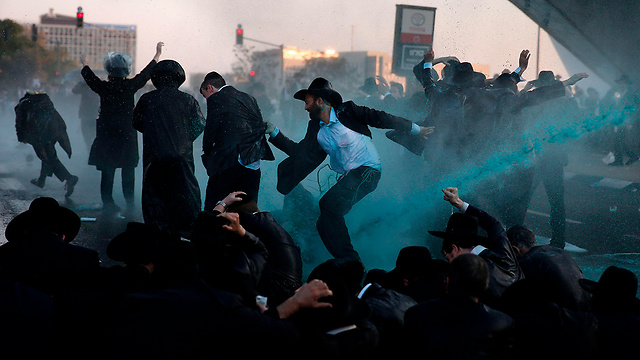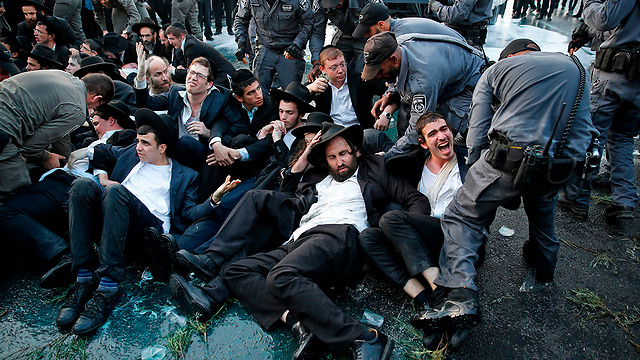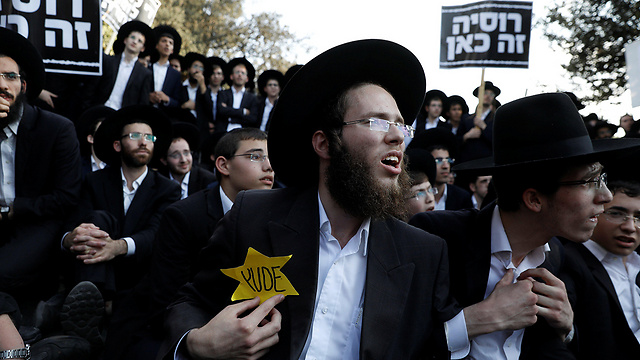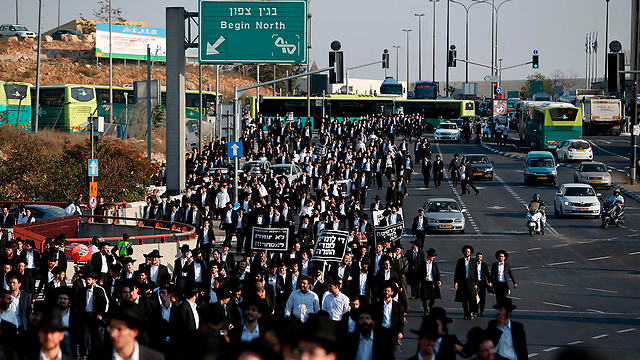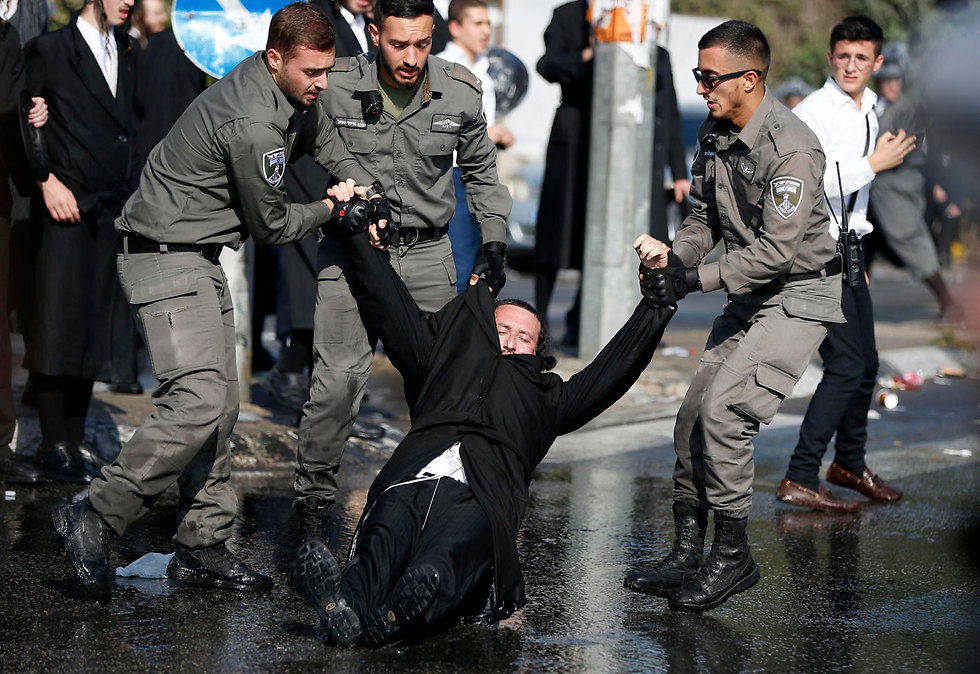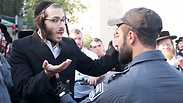
What happened to the mass Haredi draft protests?
Analysis: After weeks of road-blocking and heavy clashes with security forces across Israel on a daily basis, the recent wave of protests against the drafting of ultra-Orthodox into the IDF appears to have come to a quiet end, although dozens of yeshiva students remain in custody and the draft law has yet to be amended. So why have the protest’s organizers gone underground?
The followers of Rabbi Shmuel Auerbach, leader of the Orthodox Lithuanian community in Jerusalem, promised an uncompromising battle on his behalf until the last deserter is released, but the heated protest appears to be over and has been replaced by local, spontaneous and relatively restrained gatherings with few participants. The connection between these small protests, the Jerusalem Faction and the draft issue isn’t all that clear either.
The easy and simple explanation for this sudden halt in mass protests is actually technical. Two weeks ago, yeshiva students returned from their holiday break and have since been scattered in Torah institutions across the country, spending most of the day studying, so they are no longer available to protest.
In the first few days after the return to the yeshivot, protest leaders made sure the road-blocking would continue in an effort to refute the police assessment that the protest would die out and to prove that the ideological struggle is stronger than any “materialistic” constraint. But as time went by, their mission became increasingly difficult, and the protests grew weaker and finally disappeared from the public space.
Under the surface, however, something more significant happened. While the protest’s speakers (including the HaPeles daily, the Lithuanian faction’s mouthpiece) are insisting it’s alive and kicking and are still declaring every morning that they are willing to sacrifice their lives to free the jailed yeshiva students, some of the leading activists who are supposed to bring the masses to the streets have actually gone underground. As a result, Rabbi Auerbach keeps producing aggressive statements, but there is no one to implement them in the field.
Another reason for the dwindling protest is the faction members’ desire to control its intensity and keep leading it rather than be dragged by others.
The reason for the renewal of protests every time is the arrest of yeshiva students who were ordered by Rabbi Auerbach not to report to the IDF recruitment centers even for a draft deferment. The army’s policy is not to seek the deserters. Those who were arrested nevertheless were actually detained over traffic violations, so the police had no choice but to turn them over to the army.
As a result, the protests against the Haredi draft keep erupting again and again: Protestes were arrested, some turned out to be deserters and were jailed, the protests increased in size, more arrests were made—and so on and so forth, like an unstoppable snowball.
There are two reasonns for the paralysis among the protest’s organizers. The fear of getting into trouble with the law is a natural human feeling, even when it comes to members of the Jerusalem Faction.
Apart from the dozens of arrested protesters, the activists see the HaPeles newspaper heads, who are up to their necks in an investigation into alleged threats and extortion of commercial companies that are refusing to advertise in the paper.
The activists believe law enforcement authorities wish to come as close as possible to Rabbi Auerbach to terrorize his associates, so they are staying under the radar and being extra cautious every time they use the phone or the computer for protest purposes.
The other side of the coin—and the other reason for going underground—is a desire to put the police to the test after some officials announced they would consider questioning the admired rabbi. Some of Auerbach’s associates have decided to vanish so the police’s only option would be to act against the faction leader himself. If that happens, and a rabbi of such stature is summoned for questioning, they would set the country on fire.
The faction members’ current goal is to “restart” the campaign, so that they would be able to control it rather than get dragged into it by the military courts’ rulings. Their way to do so is to temporarily keep matters quiet until all the deserters, who are usually sentenced to short jail terms, are released—and at the same time, negotiate sentence mitigations with the army.
Once all the arrested yeshiva students are free, Rabbi Auerbach himself will be able to adjust the intensity of the protests to his needs ahead of its decisive stages. The rabbi’s chief goal, which is closer and more concrete than ever, is to make his mark on the amended draft law, which is taking shape these days, after the High Court struck down its previous version during the Knesset’s summer break.










